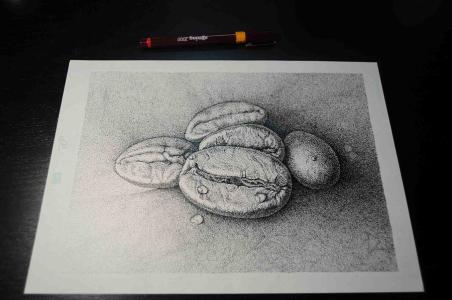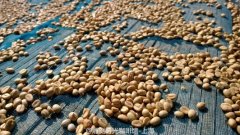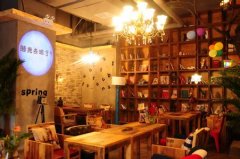A brief introduction to the History and Culture of the Origin and Development of Fine Coffee beans in Jamaica

The caffeine content of Blue Mountain Coffee is very low, which is less than half of that of other coffees, which is in line with the modern concept of health.
The same coffee tree species, whether planted in Hawaii, Kenya, Papua New Guinea or anywhere else with a similar climate, cannot produce the flavor of blue mountain coffee beans.
Pure Jamaican Blue Mountain Coffee perfectly combines the unique sour, bitter, sweet, mellow and other flavors of coffee to form a strong and attractive elegant flavor, which is unmatched by other coffee. People who love Blue Mountain Coffee say: "it combines all the advantages of good coffee & # 39; Coffee Beauty & # 39;" Jim, general manager of Pitt, which is famous for its coffee and tea business in the United States, said of Blue Mountain Coffee: "it tastes fragrant, smooth and mellow, and it makes me feel as precious as a gem. It is precisely because the taste of Blue Mountain coffee is moderate and perfect, so Blue Mountain coffee is generally drunk in the form of black coffee." Its liquid is golden in the sun and tastes smooth. According to the coffee book, Blue Mountain is the only bitter and sour coffee in the world that people can enjoy. Just drink it.
Sales editor
Jamaican Blue Mountain Coffee is harvested every year from June to November, usually by hand. After picking, it goes through the processes of washing, peeling, fermentation, dehydration, sun drying, shelling, and baking before you can get a ripe blue mountain coffee bean. In the process of raw bean processing, there are special personnel responsible for quality supervision in each step. For the very precious Blue Mountain Coffee, the packing and transportation mode adopted by the Jamaican government is also different. Unlike other coffees, Blue Mountain Coffee is not packed and transported in cloth bags at 60kg / bag, but in wooden barrels at the standard of 70kg / barrel. Jamaica is also the last country to still transport coffee in traditional wooden barrels. Jamaican Blue Mountain coffee beans must obtain a certificate of quality recognition issued by the Jamaican Coffee Industry Committee, which is the only body in Jamaica authorized to issue such a certificate. And each batch of exports will have special quality supervision experts responsible for sampling, baking, grinding and brewing coffee, and finally make a judgment on whether it is up to the standard or not.
Some small estates also grow Blue Mountain Coffee, such as Wallenford Estate, Silver Hill Estate and Atlanta Estate in J.Martinez. Even the largest landowners in the region are small-scale growers by international standards, many of whom are small landowners whose families have been working on the land for two centuries. The coffee industry in Jamaica faces a series of problems, such as the impact of hurricanes, the increase in labor costs and the difficulty of mechanizing terraces. It is difficult to rationalize planting on many small estates and farms.
However, Blue Mountain Coffee is one of those coffee retailers that value credibility to stock some coffee no matter what. A leading British retailer said: regardless of the price, he will continue to sell Blue Mountain coffee all year round because he has many customers who only recognize "Blue Mountain".
Now, 90% of the post-harvest Blue Mountain coffee is bought by the Japanese. In 1992, Jamaica sold 688 tons of Blue Mountain coffee to Japan, 75 tons to the United States and 59 tons to Britain. Now that the rest of the world can only get 10% of the output of Blue Mountain coffee, regardless of the price, blue mountain coffee is always in short supply. In the UK, Langford Brothers Brothers has been the only supplier for many years. Later, the Edmunds Group (Edmonds Group) also received supplies from Jamaica's Salda Food Company (Salda Foods).
The difference in transportation between Blue Mountain Coffee and other coffee is that it is transported in barrels with a capacity of 70 kilograms, a replica of Bonifieur barrels produced in Guadeloupe in the last century. The barrel was originally used to carry flour shipped from the United Kingdom to Jamaica, usually with a trademark and the name of the manufacturer. The Coffee Industry Council issues certificates for all authentic Jamaican coffee and bears a stamp of approval before export.
The Jamaican government used to insist that all Blue Mountain coffee is roasted in Jamaica to ensure that the quality remains the same. In fact, baking is a fine art, and it takes experience, training and expensive equipment to do a good job. From the consumer's point of view, coffee beans should be obtained and drunk immediately after baking. Coffee roasting in Jamaica is unlikely to meet this requirement. Now, raw coffee beans from Jamaica can be exported.
Other small materials
With a map of the location of neighboring countries:
Jamaica is Indian, meaning "island of springs".
In 1962 the Queen of England awarded the national emblem of Jamaica, a shield emblem of a red cross on a white ground. The red cross symbolizes that Jamaicans believe in Christianity and Catholicism, and five golden pineapple knots are distributed in the four directions and intersections of the cross, indicating the well-developed planting industry in Jamaica. A green crocodile lies at the top of the national emblem; the yellow belt with the words "outstanding, one nation" is decorated at the base of the national emblem in English. On the left and right is an Indian Arawak in a bright headdress and red and green feathered skirts; the young woman on the left holds the national emblem in her left hand and a basket of pineapple in her right hand, while the young man on the right holds the national emblem in his right hand and a long bow in his left hand.
From the above, we can understand the general production of Blue Mountain Coffee. It should be noted that 99.9% of the Blue Mountains that can be drunk in China are only planted near the Blue Mountains. Only coffee produced in 6000 hectares above 1600 meters above sea level can be called Blue Mountain, and the yield is always below 900t, according to the principle of 10% supply to the world outside Japan. Can this kind of coffee, which the world can only consume 90 tons a year, be drunk in any cafe for dozens of yuan?
The best Blue Mountain Coffee is undoubtedly one of the best. Although the price can ensure an adequate supply of Blue Mountain coffee, it does not guarantee the best flavor of the coffee. Also, this kind of coffee tastes much more expensive than it looks. If you want to taste its best flavor, you have to put more coffee beans than other coffee, otherwise the flavor will be a little different, so the flavor is that it has 10% to 15% more coffee beans than the coffee whose price is inferior to it.
The real Blue Mountain Coffee is made from the best local raw coffee beans, which is the fun of tasters. Its flavor is rich, balanced, fruity and sour, and can meet people's various needs. In addition, the high-quality fresh Blue Mountain coffee has a long-lasting flavor, as drinkers say, with a lingering aftertaste.
The best blue mountain coffee beans are NO.1 peaberry, also known as pearl beans, which are carefully selected small round beans and boutique products at an altitude of 2100 meters.
Flavor
The nose is very full-bodied, with persistent fruity flavours.
Granule
The particles are fuller.
Baking method
Moderate baking
Important Notice :
前街咖啡 FrontStreet Coffee has moved to new addredd:
FrontStreet Coffee Address: 315,Donghua East Road,GuangZhou
Tel:020 38364473
- Prev

A brief introduction to the flavor, taste and aroma characteristics of Jamaican boutique coffee beans with unique flavor
Alpine Coffee (Jamaica High Mountain Supreme Coffee Beans) is called Alpine Coffee, which is produced below 666m in the Blue Mountain area of Jamaica, and is second only to Blue Mountain Coffee in quality. It is called a brother variety of Blue Mountain Coffee by industry insiders. Jamaica Blue Mountain caffeine produces very little, so if you want to taste Jamaican coffee, then buy teeth.
- Next

A brief introduction to the market price of Jamaican boutique coffee beans with long-lasting fruit flavor
These procedures must be strictly mastered, otherwise, the quality of coffee will be affected. Coffee beans grown at low altitudes and other areas can only be called Jamaican mountain beans or Jamaican water-washed beans. Compared with the Jamaican Blue Mountains, the flavor is very different. However, the area of these producing areas is twice the size of the real blue mountain area, and the output accounts for 75% of the country's output, so don't buy Jamaican coffee.
Related
- Detailed explanation of Jadeite planting Land in Panamanian Jadeite Manor introduction to the grading system of Jadeite competitive bidding, Red bid, Green bid and Rose Summer
- Story of Coffee planting in Brenka region of Costa Rica Stonehenge Manor anaerobic heavy honey treatment of flavor mouth
- What's on the barrel of Blue Mountain Coffee beans?
- Can American coffee also pull flowers? How to use hot American style to pull out a good-looking pattern?
- Can you make a cold extract with coffee beans? What is the right proportion for cold-extracted coffee formula?
- Indonesian PWN Gold Mandrine Coffee Origin Features Flavor How to Chong? Mandolin coffee is American.
- A brief introduction to the flavor characteristics of Brazilian yellow bourbon coffee beans
- What is the effect of different water quality on the flavor of cold-extracted coffee? What kind of water is best for brewing coffee?
- Why do you think of Rose Summer whenever you mention Panamanian coffee?
- Introduction to the characteristics of authentic blue mountain coffee bean producing areas? What is the CIB Coffee Authority in Jamaica?

